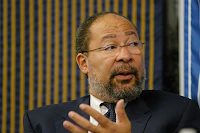The Verizon Deal: Big Numbers, Big Debt
When the deal was announced, some surely gasped. The fact that Verizon Communications decided to purchase all of Vodafone's stake in Verizon Wireless was not a surprise. Vodafone had decided to sell its stake and units in mobile phones. What likely caused market observers and headline writers to turn their heads in wonder was the size of the deal, the big numbers. They were huge. Deals and big numbers excite investment bankers and can spur them to pant and salivate. In the Verizon case, they certainly will, once Verizon gets around to handing out advisory and underwriting checks for fees. Deals and big numbers tend also to cause hiccups and coughs among some investors, research analysts and bank risk managers. This deal is big, one of the largest ever. Perhaps it sends too many hopeful signals that an era of super-size deal-making has returned. Verizon Communications announced it will pay a whopping $130 billion for Vodafone's stake. To raise $130 billion to pay ...

